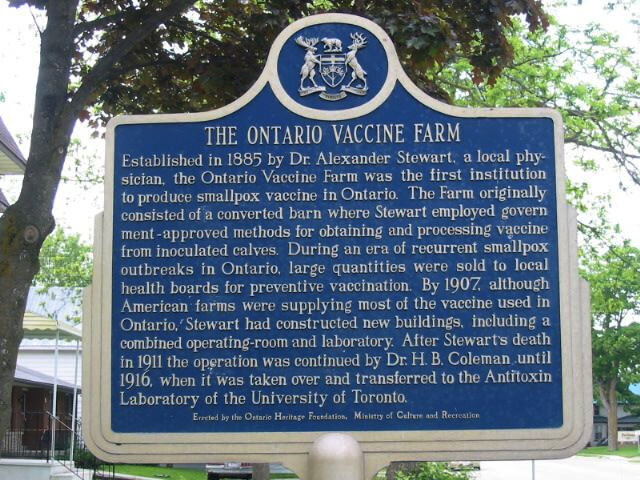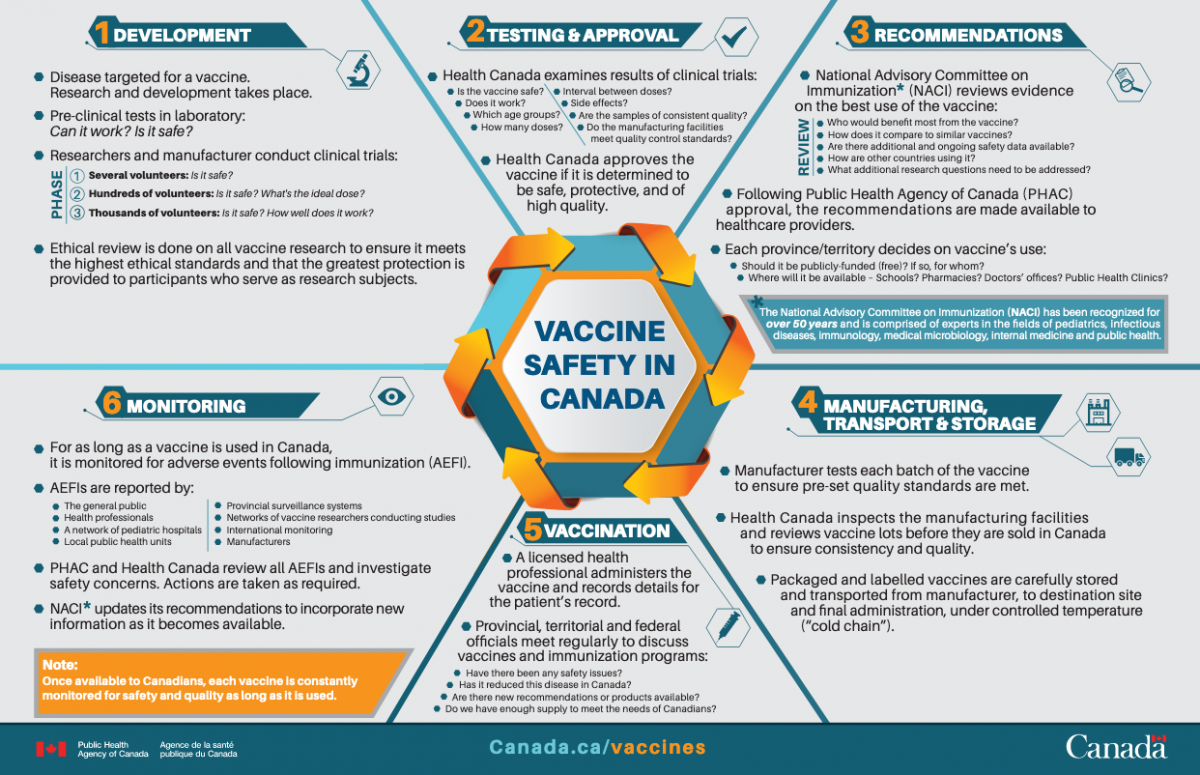You may be surprised to learn that in 1885, right here in Wellington County, at the corner of Queen and Main streets in Palmerston, Dr. Alexander Stewart founded a vaccine farm that would help supply Ontario’s smallpox vaccine from 1885 to 1916 . (Image below is from the Palmerston Railway Museum website)

In fact, the smallpox vaccine was the first successful vaccine to be developed. Eventually enough people were immunized and the disease was eradicated in the 1970s.
The development of the smallpox vaccine was just the beginning of immunization programs that help protect people from infectious diseases. In Ontario, we have a routine immunization schedule to help strengthen our immune systems and protect against diseases starting at age two months old.
However, the vaccination rate has been declining due to the spread of misinformation and vaccine myths. Since many of us did not live through outbreaks of polio, measles and mumps, vaccines are taken for granted. COVID-19 may be the first serious outbreak of a highly contagious new disease that many of us have experienced. The pandemic has brought the importance of vaccines to the forefront, including how vaccines are developed, tested for safety and effectiveness, and administered to the public.
As the world watches and waits for a vaccine that will hopefully eradicate COVID-19 just like smallpox was eradicated, people want to know “What does it take to develop a successful vaccine and make it available to all Canadians?”
How vaccines work
From immunize.ca, “Vaccines protect people from disease by introducing a portion of a bacterium or weakened virus into the body to trigger an immune response, just as though you had been exposed to a disease naturally. Vaccines work because they trick your body into thinking it is being attacked by the actual disease, so it produces antibodies to protect you. The virus or bacteria in a vaccine won’t make you sick; instead, the vaccine prepares your body with a defense (antibodies) that protects against the disease and the potential complications that can be caused by that disease.”
The development process
When it has been determined that a disease needs a vaccine in order to protect our populations, research and development begins. There are currently hundreds of vaccines for COVID-19 being developed and tested, many of them are in Phase 3 of development which involves administering the vaccine to thousands of volunteers to determine if it is safe and how well it works.
The process includes ethical reviews to ensure that vaccines are safe and effective. Health Canada, Public Health Agency of Canada, provincial/territorial health authorities (i.e. Public Health Ontario, Ministry of Health and WDGPH), the National Advisory Committee on Immunization and our health care providers all have an important role to play. You can see a visual of the vaccine safety process in the Public Health Agency of Canada’s vaccine safety poster.

Safety and surveillance
“Vaccines are safe and effective. Like all medicines, vaccines must go through many steps before Health Canada approves them for us.” - Caring for Kids Canadian Pediatric Society
As a patient or caregiver, we always want to be sure that the vaccine being administered to us or a loved one is safe. Throughout the development process and while the vaccine is in use in Canada, there is close monitoring of the vaccine and any adverse reactions.
In Ontario, health providers report any adverse vaccine reactions to their local public health unit. The process is overseen by Public Health Ontario (PHO) who is a member of the Vaccine Safety Net – a network of websites evaluated by the World Health Organization (WHO), that provide reliable information on vaccine safety.
The most common reactions are pain or swelling in the arm, but in cases where something less common occurs, these are reported too.
Future of vaccines
The smallpox vaccine marked an important time in healthcare history. Since then we have been able to live with significantly less threat from serious diseases. In fact, before vaccines were widely available infectious diseases were the leading causes of death. Today in Canada, vaccine preventable diseases cause less than five percent of deaths.
Over one hundred years of research and scientific advancements have allowed immunization programs to grow to help protect communities. Experts agree that the COVID-19 health crisis will only be solved for the long-term with a safe and effective vaccine. Planning is well underway by all levels of government and health agencies on how we will get that new vaccine to the public so our entire population can enter a new stage of vaccine history.
